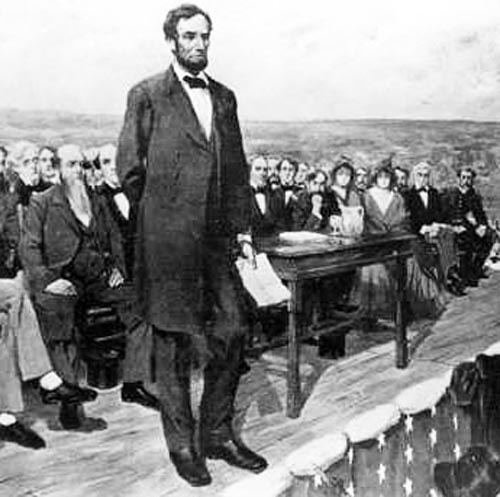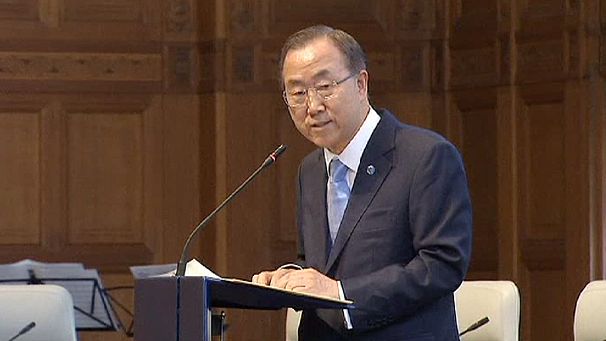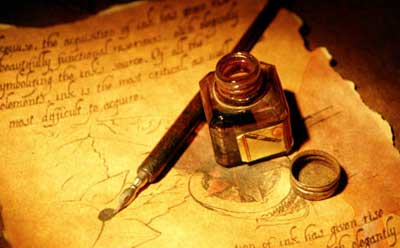 Since
time immemorial, there have been many symbolic legends of war and valiant slayers
of evil. King Arthur and his fabled sword, Excalibur,
personify the majestic spirit of conquest and battle. Many a fairy tale undertakes
the same romantic setting of saving damsels in distress and battling mythical
creatures.
Since
time immemorial, there have been many symbolic legends of war and valiant slayers
of evil. King Arthur and his fabled sword, Excalibur,
personify the majestic spirit of conquest and battle. Many a fairy tale undertakes
the same romantic setting of saving damsels in distress and battling mythical
creatures.
In
contrast to myths, reality is precarious. Heroes in war can become villains in
peacetime. Right and wrong are, therefore, interchangeable. If journalists
assert their stories and the public discounts them as the truth, what happens
if they are wrong? Adjudication and apologies are in order. That is why if we
choose the sword, a permanent outcome nearly guarantees belated regret.
 It
was not force that gave Abraham Lincoln a country; it was his eloquence and knowledge that paved his legacy. His quotes are still some of the best references
today. An unparalleled samurai
It
was not force that gave Abraham Lincoln a country; it was his eloquence and knowledge that paved his legacy. His quotes are still some of the best references
today. An unparalleled samurai, Miyamoto Musashi, knew his strength was not omnipotent, nor was his life. It was his brush and mind he indulged on his deathbed, Mahatma Gandhi was a pacifist of words. He single-handedly prevented a civil clash and subdued the British colonial rule by passive resistance, ending their sovereignty over India. Like Abraham, his convictions, too, live on.
Not everything can be solved with words. Nevertheless, the truth is: Unlike a sword that has vanquished lives, the pen is perpetual. The sword closes the future while the pen opens it. Dead men don’t traverse time, but words and paper have a timeless quality.
In
fact, the phrase – “The pen is mightier than the sword” – originated from
Edward Bulwer-Lytton’s written play,
Richelieu. He insinuated that words could save nations.
Now,
the pen has assumed other forms. Countries that have traditionally relied on
force have
recognised the pen as a distinguished tool for survival. After years
of hostility, the two Koreas are conducting joint economic efforts and
diplomatic visits. Myanmar, impregnated with democratic ideals, has abolished
its military regime. Iran has attributed its successes to public diplomacy. The
United Nations has proclaimed that diplomacy can avert conflicts and save
lives, as well as billions of dollars. Mr Bulwer-Lytton’s artistic proses were
not far off the mark.
 |
| UN Secretary-General Ban Ki-moon on diplomacy |
 Broadcasts
and newspapers are classic examples that solicit people’s views and awareness.
In this age of digital technology and interactivity, news spreads fast. The pen
has mutated into a veritable offence and defence mechanism, layered with
agenda, euphemism and mass influence. It can be considered the sword of our
time, when what matters is not your kills, but your profits.
Broadcasts
and newspapers are classic examples that solicit people’s views and awareness.
In this age of digital technology and interactivity, news spreads fast. The pen
has mutated into a veritable offence and defence mechanism, layered with
agenda, euphemism and mass influence. It can be considered the sword of our
time, when what matters is not your kills, but your profits. The consequences stemmed from large business news organisations, like Bloomberg, are colossal with a stroke of the pen or a push of the keyboard. Opposition and propaganda are bred through captions and subtle allusions in reports. Mentalities are subconsciously framed by the scopes of issues on news outlets.
Since
we can revoke what we say, not what we slay, and words can both make peace and
devise wars; pens are obviously the mightier choice for inciting opinions and events,
and passing judgment. It is always better to unite and amass, than invade and
conquer.
As
people pledge allegiance to intelligence instead of strength, the war hero is
useless. Real words are innate, timely, and immortal, inspired from life’s
frontiers. Without language, there exists no meaning and the sword is but a blade.
Without a sword, life still goes on.






No comments:
Post a Comment